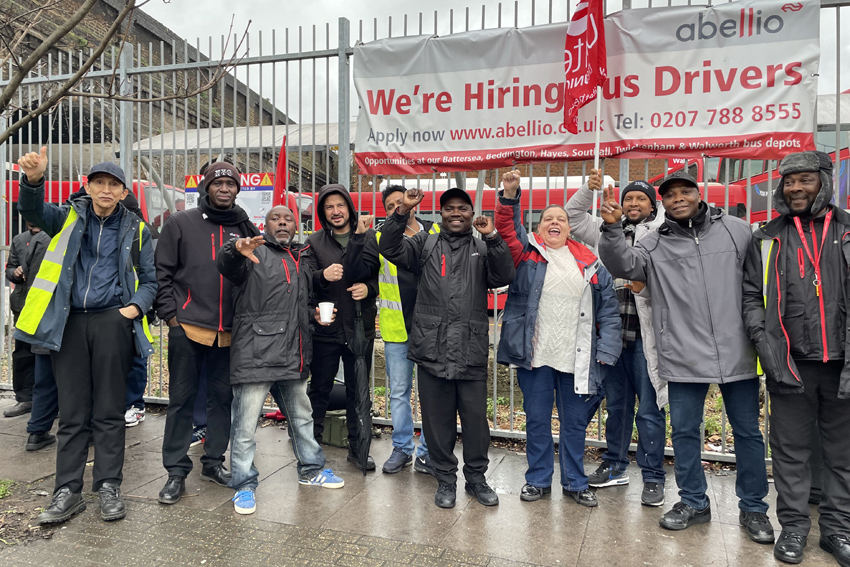
THE LONG running industrial dispute involving over 1,800 bus drivers employed by Abellio in London has ended after workers accepted a greatly improved pay offer.
Following a workplace ballot, the workers, who are members of Unite have accepted a pay increase that will see drivers with over two years’ service being paid £18 an hour. This equates to a pay increase of 18 per cent on the basic rate.
The agreement also includes increases to all rates including overtime and rest day working. Negotiations over the last few weeks also saw an increase to the rate for new starters, increased rates for Saturday/Sunday working.
The union also won the £18 per hour for drivers who transferred to Abellio under TUPE legislation and had not previously been made the offer.
Unite general secretary Sharon Graham said: ‘This is an important pay victory. Workers have stood firm and with the support of their union, Unite, they have secured a richly deserved pay increase.
‘Unite’s constant focus on the jobs, pay and conditions of our members is continuing to deliver increased pay awards for workers.’
Crucially, a commitment to immediately negotiate a new scheduling agreement was also secured, including early agreement regarding scheduling rest breaks and start times in order to bring the dispute to an end.
In addition to the pay increase, the union’s campaign has resulted in one of Unite’s reps being reinstated after they had initially been dismissed on trumped up charges.
The union had made clear that there would be no resolution to the dispute without the reinstatement of the rep.
The victory was hard won, with the workforce taking over 20 days of strike action beginning late last year to secure the pay increase.
Unite regional officer Guy Langston, said: ‘This pay deal could not have been secured without the hard work of Unite’s reps and the commitment of its members.
‘Unite will be looking to build on its increased industrial strength in future pay negotiations.’